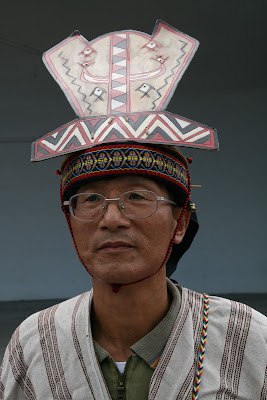

The Pingpu people – numbering around 200,000 - live in Taiwan’s western lowland plains , unlike most aboriginal groups who come from the island’s mountainous areas and east coast. Their geographical location brought them into the closest contact with the first wave of ethnic Han Chinese settlers to Taiwan four hundred years ago, hastening their assimilation into the main population.
As a result, many of their customs and languages began to die out. Today, pingpu dialects are only spoken in three out of ten tribes – and mainly by the elderly. Activists say their traditional cultures and languages are in danger of dying out altogether – unless they get government help.
Over the years, the authorities in Taiwan have granted official recognition to 13 aboriginal tribes –who make up about 2 per cent of the population – which gives them access to greater government funding and support to promote their indigenous culture and languages.
The Pingpu, though, have not been successful in their efforts for recognition - having failed to meet certain thresholds on language useage, cultural observance or possession of territory. They argue the thresholds have been set too high. And they’ve levelled accusations of discrimination and exclusion.
Whether they’ll be able to succeed in future efforts to lobby for government support remains to be seen; but time is running out. And some scholars have warned that, without official help, the unique culture of the pingpu people could disappear altogether within the next decade.





